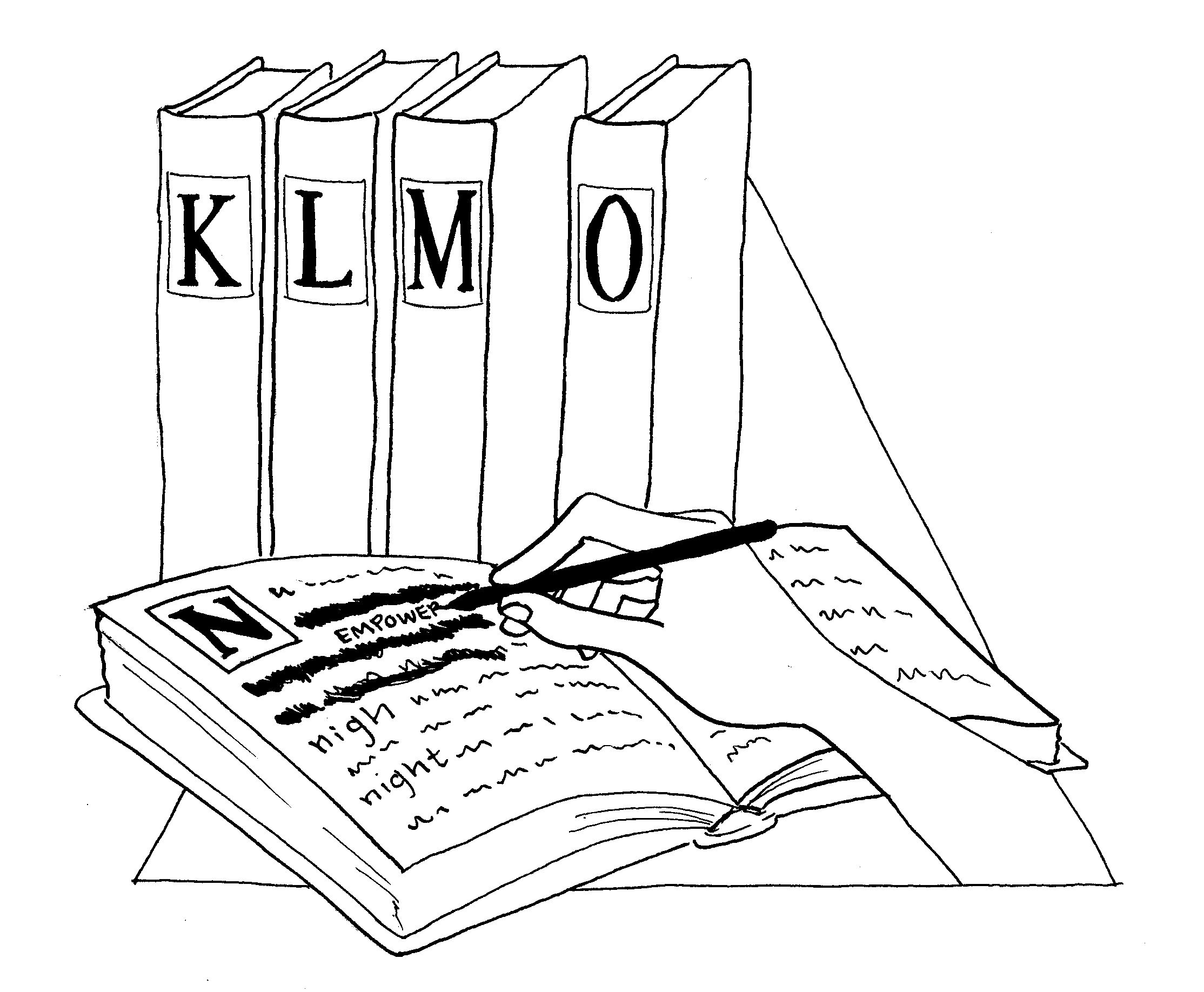Reclaiming words: the struggle to find empowerment from pain
October 20, 2017
 This
piece represents the opinion of the author
.
This
piece represents the opinion of the author
.
Being at a liberal arts college, I constantly hear about the politics of language, but I have never known of in-depth discussions on slurs and epithets. I was reminded of this last week when I attended the performance of queer disabled femme poet Lakshmi Piepzna-Samarasinha who was asked at some point why she calls herself a “crip.” Her remarks that using ‘crip’ is part of a movement to subvert traditionally ableist language reminded me of the reclamation movement of ‘nigga,’ also known as the ‘N-word.’ This year, debates about the N-word have resurfaced in light of Bill Maher’s N-word joke on his talk show and the Instagram video of white sorority girls singing the N-word in the Kanye West classic “Gold Digger.” This debate often enters the social sphere through one question: why can’t white people say the N-word?
The first obvious reason why white people should not use the N-word is because it’s a derogatory racial slur that whites historically used to degrade free and enslaved Africans for over four centuries. Alas, as my mother used to tell me, “the ’70s were much simpler times,” because it was automatically racist to use racial slurs because racists were the ones who had no shame in uttering them in public. Today, with the surge in popularity of hip-hop music, it is increasingly difficult to suggest that all N-word abusers are racist, since most rappers include the word in their music. Many rappers claim to have taken the power out of the N-word, dropping the hard ‘R’ and transforming the slur into a term of endearment for black people who share a history of oppression in an anti-black society. Many white Americans find it hypocritical for African Americans to be allowed to say it. One might ask, how can a white hip-hop listener get the full consumer experience if he isn’t allowed to recite the song lyrics in full?
When my white peers in school used to ask me why they couldn’t say the N-word while reciting song lyrics, my special response went something like, “You mean ‘neighbor?’ Of course, you can use that word. That’s a term of endearment.” In hindsight, I could’ve been less petty and told my peers that I would feel uncomfortable with them using the N-word. If they still felt an urge to say it despite my discomfort with it, they must not care enough about my feelings to truly be my friend. A real friend would respect my right to human dignity by immediately meeting my request. White people are not necessarily racist for using the N-word in the context of reciting a rap song, but they should be held accountable for their actions if they know the impact of saying the word.
The typical reason given for why the N-word is taboo is that its usage causes black people pain when it comes out of a non-black person’s mouth, but I take issue with this explanation. Black people come with various backgrounds and worldviews, and therefore might not all be on the same page about the N-word’s usage. For instance, I would feel uncomfortable with a black person calling me “nigga” because I’d rather be called brother, cuz, fam or any other term of endearment that doesn’t have such a dark history of denigrating black Americans. Secondly, anyone should be able to use this word when recounting history or reading literature. I want my children to know black history, that black people were historically called “nigger,” not less precise euphemisms like “the N-word” or “racial slur” that cushion the visceral impact of the word. Jay-Z’s song “The Story of O.J.”—where he raps, “Rich nigga, poor nigga, house nigga, field nigga/Still nigga”—was the most fitting use of the N-word I’d ever heard in rap history. Of course, all the articles that discourage white people from using the N-word should be read as both educational pieces and safety warnings. White students might not be in physical danger at Bowdoin for slinging the infamous slur, but the same behavior might be met with violence in black-majority environments like South Side, Chicago or Newark, New Jersey. After all, some language in certain contexts is not protected under the First Amendment, like “fighting words,” “those which by their very utterance inflict injury or tend to incite an immediate breach of the peace.”
There are various movements happening to reform American lexicon in our rapidly changing society, like the SlutWalk movement to redefine the word “slut” or the Chicano Movement to make “chicano” an alternate term for Mexican American. Still, the strongest critique of reclamation movements is that the conventional meaning of a slur typically overshadows the new definition until the society systematically changes to fully embrace the respective groups that were historically oppressed. Since white people’s usage of the N-word still causes harm, black Americans haven’t completely taken the power out of the word. Perhaps it’s impossible to do so while America still grapples with racial profiling, police brutality and a hate-filled history of white mobs and spectacle lynchings. America is not a “post-racial” society; it has yet to grow out of being a racist one. I don’t have the answer to the problems that the N-word’s usage presents. That being said, Americans need to stop dancing around the conversation on race relations, and finally discuss with one another in order to reconcile the complexities of our multicultural world.


Comments
Before submitting a comment, please review our comment policy. Some key points from the policy: